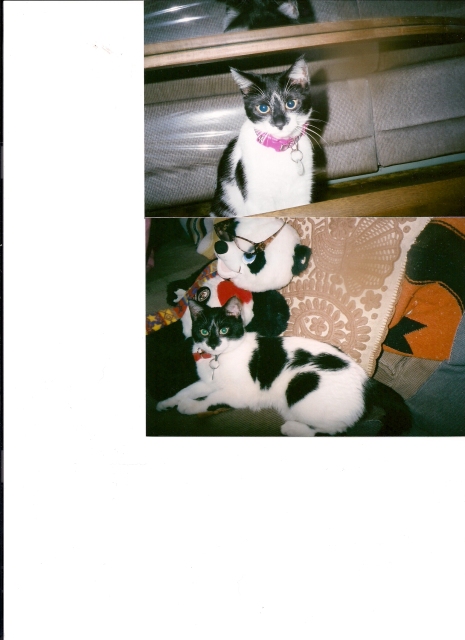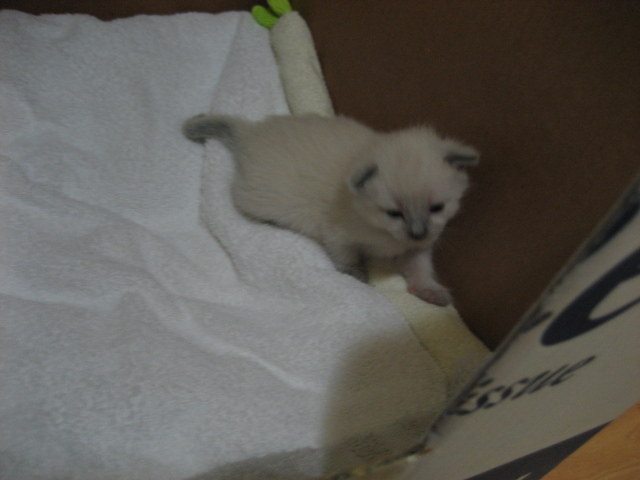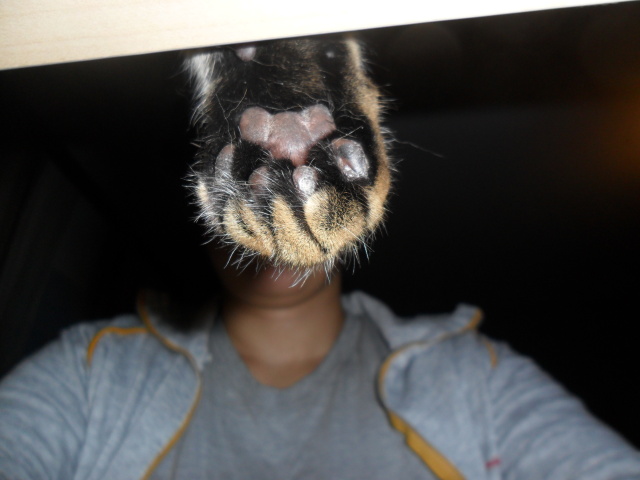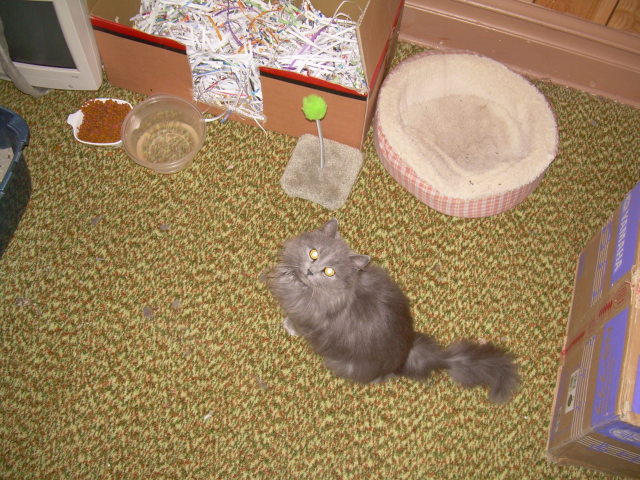QuestionHi Jessica,
My dear 12 year old Persian male cat (castrated) has been ill lately. Prior to this he has always had good health & been to regular check-up's. About a month ago we took him to the vet because he didn't seem to be eating much and he became withdrawn (he also began to lose weight pretty rapidly). The vet kept him a day and ran a full range of tests. She also checked/cleaned his teeth, however his teeth were in great shape. She said he did have a chronic kidney illness, but the kidney problem didn't need drug treatment at this stage. The vet suggested a special diet that wouldn't be so hard on his kidneys. After a few days we managed to get him eating again and he seems to like his new diet. He does look brighter now & seems to be gaining some weight, but is still very withdrawn. He just seems to want to go hide someplace. He is also urinating anywhere except his cat toilet. I have booked a follow-up veterinary check and will take up these issues with her. In the meantime I wanted to hear your opinion about all this as I am very worried. Are kidney problems mainly confined to this breed or does it affect all older cats? Is it a slow progressive illness or something that can quickly deteriorate? Can it be successfully treated with drugs and is it always terminal? He is 12 years old, but I heard Persians can live considerably longer than this. I sure wouldn't like to lose the little guy.
Regards
Mike
AnswerHi Mike,
Sorry to hear of his diagnosis. Some kidney diseases are more common in Persians than in other cats, specifically Polycystic Kidney Disease (PKD). But Chronic Renal Failure (CRF), which can be caused by PKD, is very common amongst all cats. PKD usually causes early kidney disease, typically starting at about 5-8 years old. So it's most likely that your kitty has the chronic renal failure that most other cats get at 10 years or older.
The end results of the diseases are the same. I'm sad to say that renal failure is ultimately a terminal condition, unfortunately. The rate of deteriotation varies from cat to cat. Survival time can last from weeks from diagnosis to a couple of years. Diet seems to be the most important way to help prolong a kidney patient's life, and there are some supplements that can help.
The most dangerous mineral to a kidney patient is phosphorus. Because the kidneys are not working at full capacity, the body is not able to excrete all the usual dietary phosphorus in the urine. If phosphorus levels in the blood are too high, eventually, calcium in the blood will be too low, and the body will begin to draw it out from the bones. The parathyroid gland will also become overactive. Not only will this cause weak bones, but it will cause all sorts of unpleasant muscle cramping, bone pain, itching and weakness. We want to limit phosphorus in their diet as much as possible. His kidney diet already has a lowered phosphorus level, but you may also want to talk to your vet about adding in a phosphate binder. This is a supplement that will help further prevent his body from absorbing any phosphorus. Epakitin is one especially formulated for cats. Alternagel is another (this one has a yucky taste but is probably more widely used).
Another supplement that might make him feel a little better is put out by the same company, Vetoquinol. It's called Azodyl, and in many patients it helps remove waste products from the blood that the kidneys are no longer able to keep up with. This can improve his quality of life and might slow the progression of the disease. The sooner you start using it, the better. I think these products should be available to you and your vet in Norway. I have a lot of faith in Vetoquinol products, as do most vets.
I would also recommend that you start giving him a vitamin/iron supplement called Pet-Tinic at home. Cats with kidney disease begin having trouble making red blood cells, pretty early in the disease, because his kidneys become deficient in producing a hormone called erythropoietin (EPO). This is what signals the bone marrow to make red blood cells. Iron will help him get the most out of what EPO he does make.
One medication to keep in mind is benazepril. This medication is used to lower blood pressure in human patients, and while it has some skeptics, many vets feel it works for CRF patients in a couple different ways. One is that many CRF patients have high blood pressure, and this makes them feel poorly, so lowering their blood pressure just helps them feel better. The second is that kidney patients lose vast amounts of protein in their urine - the reason they become so skinny so quickly. Benazepril may help prevent so much protein loss. You should talk to your vet about when adding in benazepril might be right for your kitty.
When the disease progresses to a stage where he becomes dehydrated on a chronic basis, the vet can show you how to give him fluids under the skin at home. This will be very important! Dehydration will have him feeling horrible, it will worsen his kidney condition, and it will even put his heart and brain at risk for failure. Most cats receive fluids one to three times a week at first, and as often as daily in later stages of the disease. You may also be shown how to give him some B-12 injection with the fluids to further help his red blood cell count.
If your kitty has lost appetite or become nauseated, an anti-nausea medication like Cerenia or an acid blocker such as famotidine can be given, or an appetite stimulant such as mirtazepine can be prescribed.
Finally, in the end stages, some kidney patients get peptic and oral ulcers. A medication called sucralfate can be mixed with water and given to your kitty to help coat and heal the ulcers.
I hope your cat lives a couple of healthy years yet!
Best wishes,
Jessica

 Recently Adopted Cat
Question
CREAM PUFF
Hello !
Hoping all is well.
Recently Adopted Cat
Question
CREAM PUFF
Hello !
Hoping all is well.
 is my kitten blue or blue cream point?
Question
polar bear
hi Jessica, our mommy cat is a blac
is my kitten blue or blue cream point?
Question
polar bear
hi Jessica, our mommy cat is a blac
 Cat paw pad white spot
Question
Drakey Paw Pad
Hi,
I just randomly noticed th
Cat paw pad white spot
Question
Drakey Paw Pad
Hi,
I just randomly noticed th
 How pregnant is my cat
QuestionQUESTION: I was adopted by a local neighbor hoo
How pregnant is my cat
QuestionQUESTION: I was adopted by a local neighbor hoo
 18 yr old male cat
Question
Simon at 13 years
My cat is 18 years ol
18 yr old male cat
Question
Simon at 13 years
My cat is 18 years ol